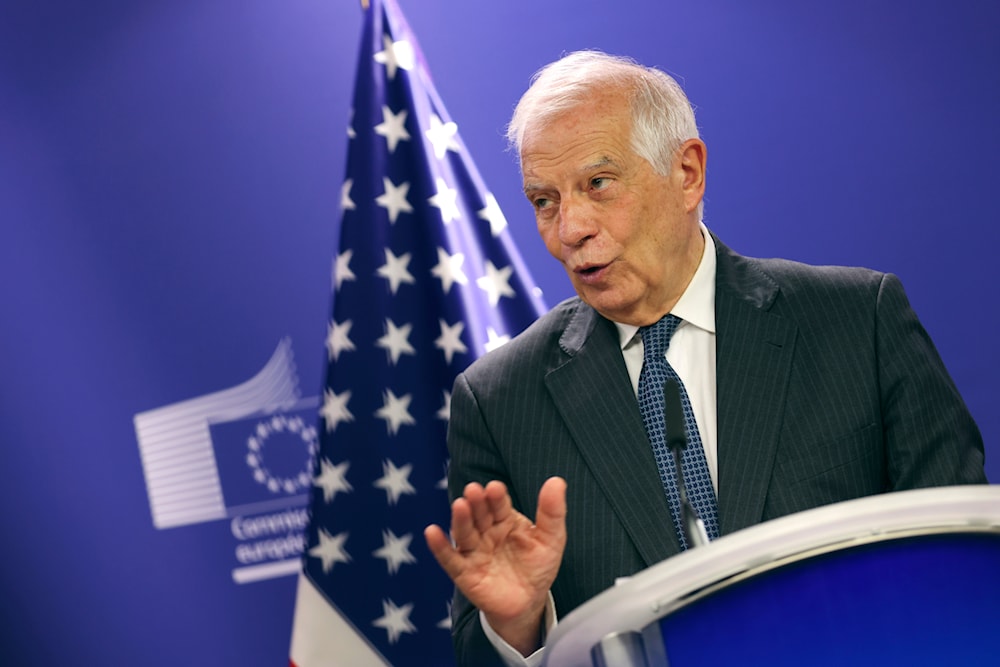EU to sanction Iranian missiles, drones for alleged Russia transfer
EU chief Josep Borrell states that the geographical area will be expanded "to cover drones and missile deliveries not only to Russia but to the whole region of the Middle East and the Red Sea".
-

EU High Representative Josep Borrell addresses a media conference at EU headquarters in Brussels, Friday, April 4, 2024. (AP)
After a press briefing and post-EU Foreign Affairs Council meeting, EU foreign policy chief Josep Borrell declared on Monday the unanimous agreement by EU foreign ministers to expand sanctions on Iranian manufacturers and exporters of unmanned aerial vehicles and missiles – alleging their potential transfer to Russia, Middle East and the Red Sea.
"It is important to notice that we have reached a political agreement in order to enlarge and expand the existing drones [sanctions] regime to cover missiles and their potential transfer to Russia. The existing drones’ regime to impose sanctions to Iran in order to cover missiles and their potentials – for the time being, it has not happened – but their potential transfer to Russia," Borrell said.
He announced that the geographical area would be expanded "to cover drones and missile deliveries not only to Russia but to the whole region of the Middle East and the Red Sea," noting that the list of prohibited drone components would also be expanded.
Read more: Iranian FM: 'Strike' was more like 'toys our children play with'
The sanction campaign by the EU was preceded by sanctions from the US and the UK last week, which comes after Iran's retaliatory strikes on "Israel" for the occupation striking its consulate in Syria earlier this month.
The United States and Britain announced widespread sanctions against Iran's military drone program.
"Today, we are holding Iran accountable – imposing new sanctions and export controls," US President Joe Biden said in a statement.
Washington's sanctions target 16 people and two companies reportedly involved in Iran's unmanned aerial vehicle (UAV) program, as well as components for the drones used in the attack, according to the Treasury Department.
"We will continue to deploy our sanctions authority to counter Iran with further actions in the days and weeks ahead," US Treasury Secretary Janet Yellen confirmed in a statement.
Iran's representative to the United Nations, Amir Saeid Iravani, explained that the retaliatory attack came in "the exercise of Iran's inherent right to self-defense as outlined in Article 51 of the Charter of the United Nations and recognized by international law."
The UK government also targeted seven individuals and six companies for allegedly enabling Iran to continue what it described as "destabilizing regional activity, including its direct attack on Israel."

 3 Min Read
3 Min Read








